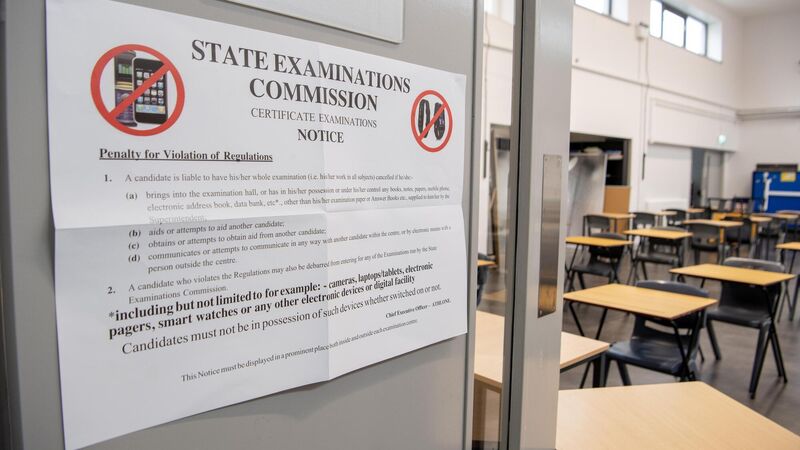Unions to vote on Leaving Cert reform proposals after talks end

Many teachers have also raised concerns around the authentication of work completed as part of these components given the rapid advancements in AI technology. File Picture: Domnick Walsh © Eye Focus LTD.
Talks aimed at easing teachers’ concerns about proposed incoming changes to the Leaving Cert between the post-primary teacher unions and the education minister have concluded.
Both the Association of Secondary Teachers Ireland (ASTI) and Teachers’ Union of Ireland (TUI) are to now put Helen McEntee’s latest proposals on senior cycle reform to a vote of their members.













